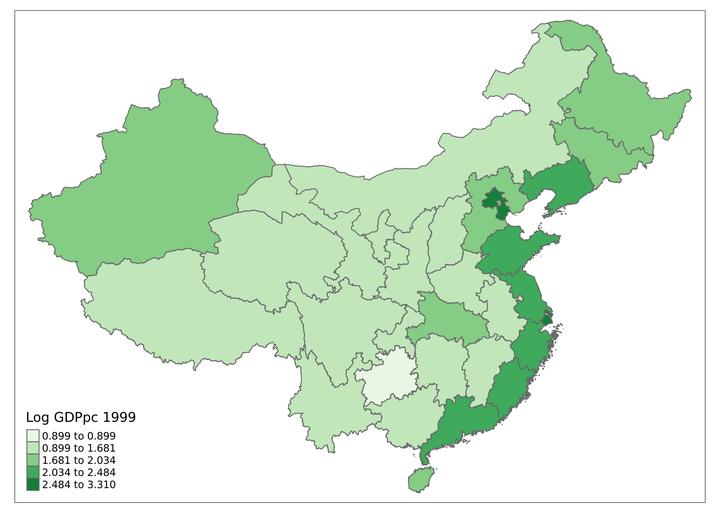Explainin Regional Income Convergence in China: An Exploratory Spatio-temporal perspective

Abstract
Uneven regional development has become an issue in China since the Open and Reform Policy in the 1980s. The imbalance can be observed as the “coastal-west divide” in previous convergence studies. This paper aims to contribute to the mainstream of the convergence study by including the role of space, analyzing three economic indicators, regional income, investment, and human capital, from 1999 to 2017. In contrast to inconsistent results in investment and human capital as conditioning factors in the previous income convergence study, this research found consistent results using either classical convergence or the new exploratory technique in spatial analysis. Our findings confirm the investment-driven economy in China and suggest that investment mainly facilitates the convergence trend of regional income and gradually narrows the coastal-wide divide. At the same time, there is no significant convergence in human capital, whether including the role of space or not. These findings suggest that the promotion of low-income regions with better spatial connectivity could achieve balanced regional development.